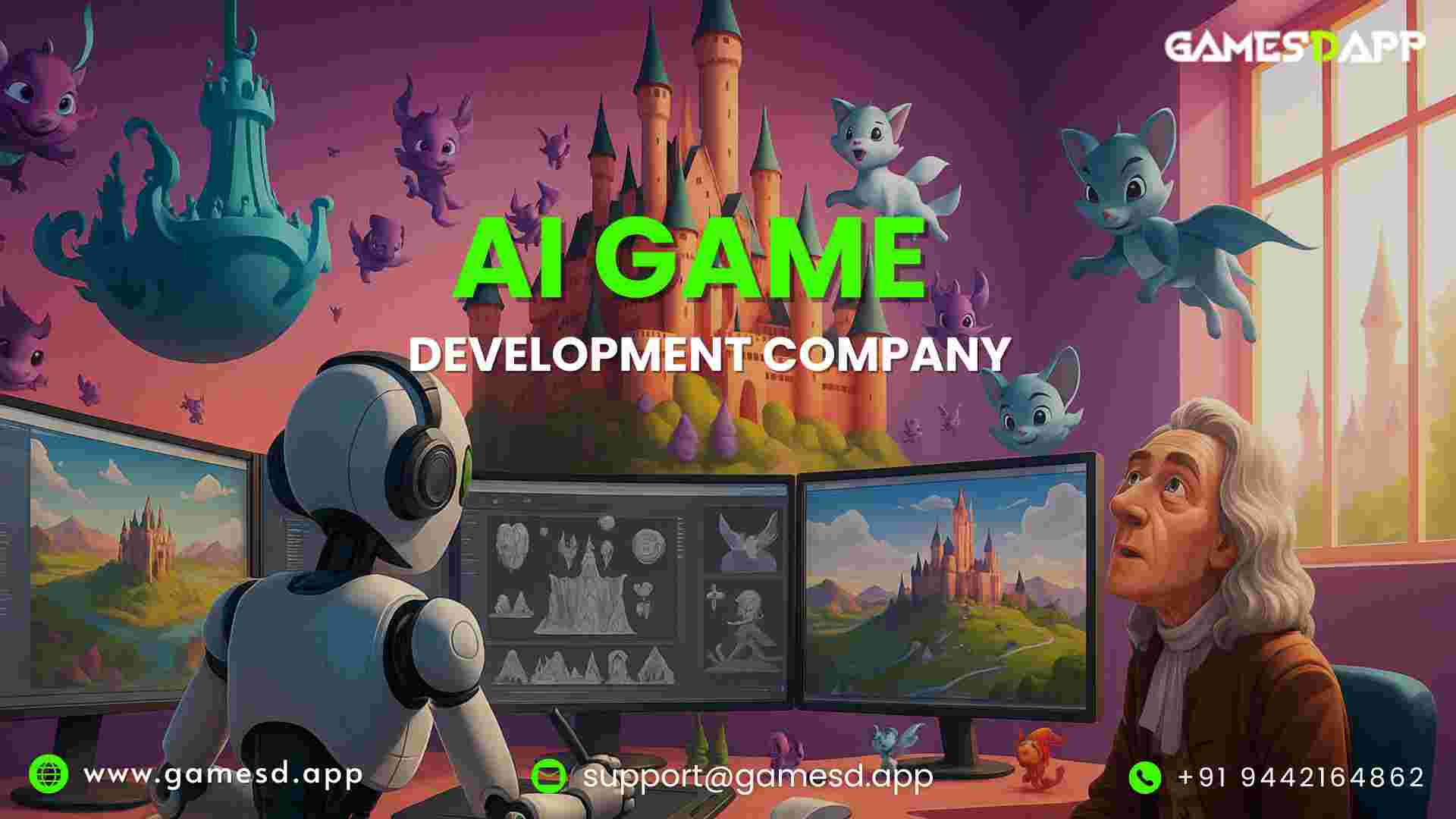Artificial intelligence is no longer just a futuristic concept in gaming—it’s the backbone of how modern games are built, tested, and optimized. As players demand smarter worlds, dynamic environments, and seamless gameplay, developers are turning to structured AI game development frameworks to deliver. These frameworks simplify the complex processes behind design, quality assurance, and optimization, ensuring studios can create innovative experiences while saving time and resources.
A structured framework matters because it brings consistency. Instead of building AI systems from scratch for every project, developers rely on pre-defined modules and workflows, making game creation faster, more reliable, and scalable.
What Is an AI Game Development Framework?
At its core, an AI game development framework is a structured environment that provides tools, processes, and algorithms to integrate artificial intelligence into game design and operations. It acts as a foundation for developers, guiding how AI is embedded in areas like decision-making, procedural generation, and player interaction.
For studios and developers, the benefits are immense. Frameworks reduce repetitive coding, streamline testing, and make it easier to optimize games across multiple platforms. They also allow smaller teams to compete with industry giants by offering ready-to-use AI modules.
Key Components of AI Game Design Frameworks
AI-Powered Game Engines
At the heart of modern AI game design are AI-powered engines. These engines manage adaptive mechanics such as dynamic difficulty adjustment, evolving storylines, and smarter NPC behavior. By making gameplay flexible, they enhance immersion and keep players engaged for longer periods. When combined with frameworks like Unity 3D Game Development, these AI-driven systems unlock even greater possibilities — enabling developers to craft scalable, visually rich, and intelligent game worlds.
Procedural Content Generation
One of the most powerful elements of an AI game development framework is procedural content generation. Instead of manually building every terrain, mission, or quest, AI algorithms can create endless variations automatically. This ensures games remain fresh and highly replayable without burdening developers with repetitive design tasks.
Adaptive NPCs and Environments
Gone are the days when NPCs acted on static scripts. Adaptive AI allows NPCs to learn from player choices, shift strategies, and respond in unpredictable ways. Similarly, environments evolve as gameplay progresses—changing difficulty levels, altering layouts, and providing dynamic challenges that make each playthrough unique.
AI Game Testing Framework: Smarter QA for Smarter Games
Automated Bug Detection
AI makes quality assurance faster and more accurate. Automated bug detection enables AI systems to identify errors and inconsistencies earlier than human testers, preventing issues from slipping into production.
AI-Driven Player Behavior Simulation
By simulating real player behaviors, AI testing frameworks can detect weaknesses, exploits, and points of frustration within a game. This ensures a smoother launch and fewer complaints from early adopters.
Performance Testing with Machine Learning
Machine learning enables performance testing across multiple platforms simultaneously. From frame rate analysis to memory optimization, AI ensures games run seamlessly, whether on mobile, console, or PC.
Game Optimization with AI Frameworks
Real-Time Analytics and Performance Tuning
AI-powered analytics track player activity and system performance in real time. Developers can make instant adjustments, improving gameplay responsiveness and stability.
Reducing Lag and Improving Gameplay Smoothness
Predictive load balancing powered by AI dynamically manages resources to reduce lag. This ensures smoother gameplay experiences, even in complex, graphics-heavy environments.
AI for Balancing Mechanics and Difficulty
AI algorithms monitor player performance and adapt difficulty levels accordingly. This creates a personalized experience where challenges evolve naturally, keeping engagement high.
Top Tools and Technologies for AI Game Development Frameworks
AI Libraries and Engines
Tools like TensorFlow, PyTorch, and Unity ML-Agents bring machine learning and reinforcement learning into game mechanics. These libraries make advanced AI accessible to developers of all sizes.
Cloud-Based AI Testing and Optimization Tools
Cloud infrastructure supports large-scale testing and optimization, allowing developers to assess performance across thousands of devices and environments simultaneously. This guarantees smoother cross-platform releases.
Challenges in AI Game Development Frameworks
Over-Reliance on Automation
Too much automation can create repetitive or predictable gameplay loops. Developers must combine AI with human creativity to maintain originality.
Balancing Creativity with AI Efficiency
While AI speeds up processes, it should never replace storytelling or artistic direction. Successful frameworks strike the right balance between automation and human innovation.
Data Privacy and Ethical Concerns
AI-driven personalization requires collecting vast amounts of player data. Studios must handle this data responsibly, ensuring compliance with privacy regulations and ethical standards.
Future Trends: Next-Gen AI Frameworks for Gaming
Generative AI in Game Design
Generative AI is being used to create assets, characters, and storylines dynamically. This reduces production time and provides endless creative possibilities.
Neural Networks for Immersive Gameplay
Neural networks enable NPCs and virtual environments to behave more like real-world systems, making interactions unpredictable and highly engaging.
AI-Driven Metaverse Game Development
In the metaverse era, AI frameworks are powering expansive, interconnected virtual worlds. From in-game economies to social interactions, AI ensures these ecosystems remain adaptive and scalable. When combined with advanced Metaverse Game Development practices, AI not only enhances immersion but also enables the creation of persistent, intelligent, and socially engaging environments that evolve alongside player behavior.
Conclusion
AI isn’t just another tool in the developer’s kit, it’s reshaping the very foundations of how games are imagined, designed, and experienced. From AI-powered engines and procedural worlds to adaptive NPCs that think and react like players, the future of gaming is smarter, more immersive, and deeply personalized. As this transformation accelerates, the role of a trusted partner becomes vital.
This is where GamesDapp, a trusted AI Game Development Company, comes in. With expertise in AI Game Development, we help studios, startups, and enterprises bring intelligent, engaging, and future-ready games to life. Smarter engines and smarter worlds aren’t just the future, with GamesDApp, they start today.




